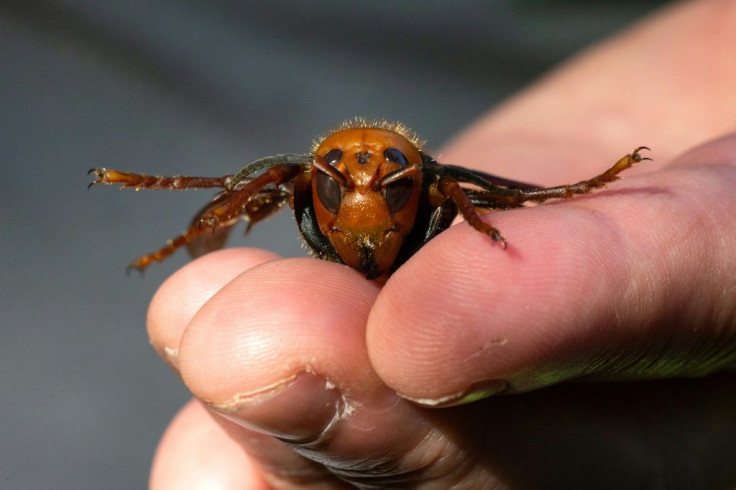First ‘Murder Hornets’ Nest Found In US Will Be Destroyed
The “murder hornets” nest found in the Pacific Northwest won’t be around for long. The Washington State Department of Agriculture announced they found the first nest in the U.S. and it will be destroyed shortly.
The WSDA entomologists found an Asian giant hornet nest (nicknamed “murder hornets”) on a property in Blaine, which borders Canada. After trapping and tagging several of the hornets last week, they finally had luck when they were able to attach a radio tracker to one deadly insect and followed it back to the nest.
The Asian giant hornets made a home in a tree, which isn’t always the case. “While Asian giant hornets normally nest in the ground, they are occasionally found nesting in dead trees. Dozens of the hornets were seen entering and exiting the tree while the WSDA team was present,” a press release revealed.
They shared a video of the "murder hornets" nest on Twitter:
In true 2020 fashion, our last video accidentally had several minutes of black screen at the end. Here's what we meant to post of the #AsianGiantHornet nest found in a tree cavity in Whatcom County. pic.twitter.com/f1vO8qxmly
— Washington State Department of Agriculture (@WSDAgov) October 23, 2020
The first Asian giant hornet was spotted in Washington in December 2019 and scientists trapped their first insect in July. They are an invasive species, which is why they will be destroyed Saturday.
While “murder hornets” kill 30 to 50 people in Japan each year, scientists are also concerned about the deadly hornets killing the honeybees and other insects that are vital to healthy ecosystems in the U.S. The Asian giant hornet is five times the size of a honeybee and can take out a honeybee hive in hours.
The east coast doesn’t have murder hornets at the moment, but they’ve been fighting a different invasive species. The spotted lanternfly, also an invasive species from Asia, sparked “quarantine” rules in New Jersey.

© Copyright IBTimes 2025. All rights reserved.





















